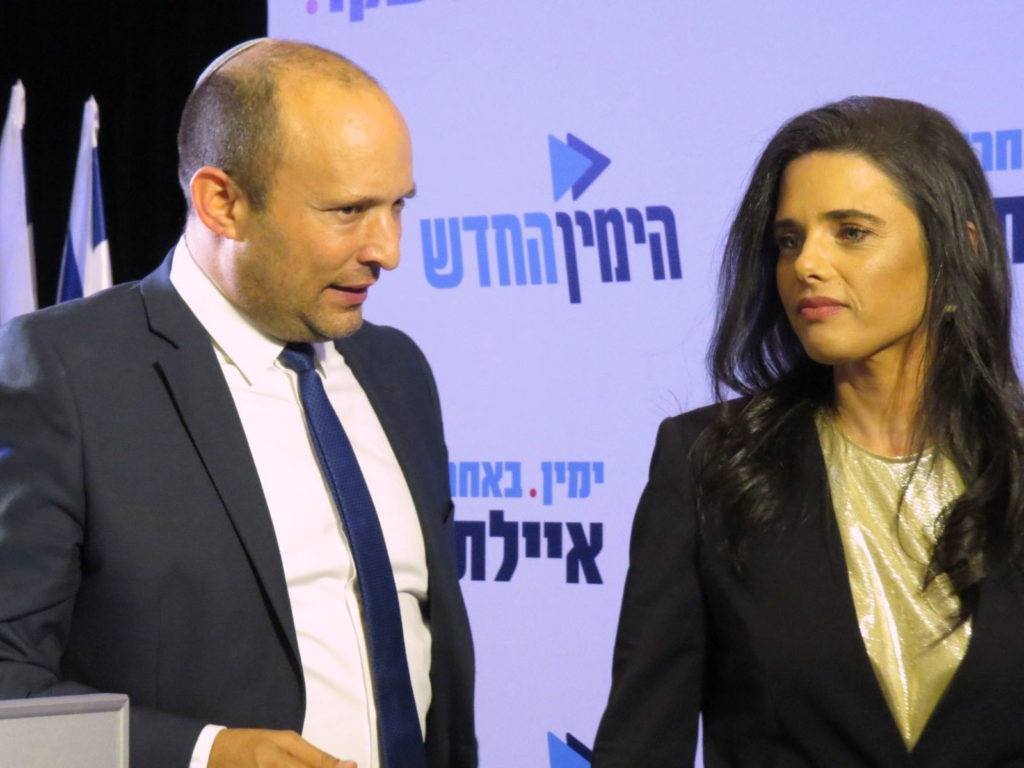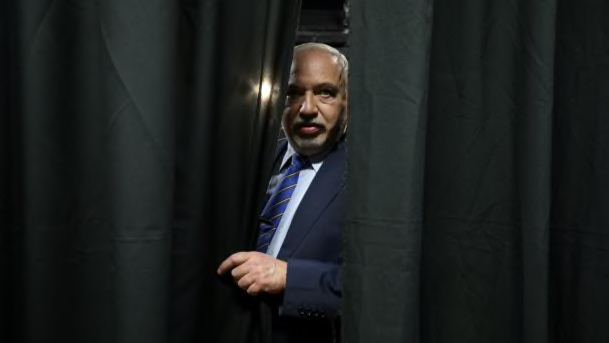Australia/Israel Review
The Re-Election
Aug 28, 2019 | Amotz Asa-El

Israeli politics has never felt so boring. A mere five months after electing their lawmakers, Israeli voters will be returning to the same polling stations where they will again face pretty much the same political candidates contesting the same political issues as they did at the election in April.
The main rivals, the ruling centre-right Likud and the centrist opposition party Blue and White, will be fielding the same leaders, Binyamin Netanyahu and former IDF chief of staff Benny Gantz, who will be followed by the same lists of candidates they fielded last April.
The same goes for the issues being debated, which are heavily dominated by Netanyahu’s legal situation, as he awaits a hearing with Attorney-General Avichai Mandelblit in October regarding allegations of bribery and breach of trust. An effort by the Labor Party to stir up an economic debate, via a press conference in which its leaders presented an ambitious plan to expand social spending, went almost unnoticed.
The election, at least the way things currently seem, will be as intensely personalised as the previous poll, with Likud and its conservative satellites insisting Netanyahu is the victim of a witch hunt, while the opposition insists he must step aside until his legal situation is clarified.
Yet Israel being Israel, where lawmakers can change political affiliations several times along their political careers, the brief period between this year’s two elections still sufficed for some dizzying jockeying.

Meretz party chairman Nitzan Horowitz, Former Israeli Prime Minister and leader of Israel Democratic party, Ehud Barak and Israeli parliamentarian Stav Shaffir hold a press conference regarding their alliance called the Democratic Union political alliance, ahead of the Israeli Elections
On the left, former prime minister Ehud Barak announced a comeback with a new party, Democratic Israel, hoping to use it as a lynchpin to unite his former party, Labor, and the left-liberal Meretz. His hopes were quickly dashed.
Though joined by Major-General (res.) Yair Golan, a former deputy IDF chief of general staff, and by lawyer Noa Rothman, granddaughter of the late prime minister Yitzhak Rabin, Barak’s party failed to attract big names, and polls suggested it would win barely 5% of the vote. Labor, meanwhile, failed to play by his script and refused to join his ticket, reflecting animosity between Barak and Labor’s old-new leader, Amir Peretz.
Barak did manage to harness Meretz to his ticket, but not with himself as a leader of the new configuration, called The Democratic Camp. Instead, it will be headed by Meretz leader Nitzan Horowitz, an openly gay former TV journalist. Rather than be number two, Barak relegated himself to the ticket’s tenth slot, a borderline position, according to polls. Given that Barak is now 77, this manoeuvre may well be the final one in his 24-year long political career.
Beyond his personal fate, Barak’s stratagem unfolded in a way that makes it pretty much impossible that the party it produced will end up in the next coalition: Likud and Meretz are ideological opposites, and Blue and White’s only chance to form a coalition depends on partners who will reject any Meretz involvement.
Labor, meanwhile, executed its own political manoeuvre, teaming up with social crusader Orly Levy-Abecasis, a lawyer, mother of four, and former beauty queen who was a lawmaker for the secular-nationalist Avigdor Lieberman’s Yisrael Beitenu (“Israel Our Home”).
Born and raised in Beit Shean, a working-class town tucked between the Jezreel Valley and the Jordanian border, Levy-Abecasis is the daughter of David Levy, the former right-wing union leader who served three times as Israel’s foreign minister between 1990 and 2000 in various governments.
Though hailing from this right-wing lineage, as opposed to Peretz’s past as chairman of the Histadrut labour union, the pair authentically represents the second generation of North African immigrants, as well as the social and geographic peripheral areas of Israel where those immigrants largely ended up. (Peretz is from the Gaza-border town of Sderot, which is course known today primarily as the target of much rocket fire from Gaza.)
Though polls don’t currently indicate this, chances are good this unique association will surprise at the ballot box. In any event, in its current shape, Labor may end up in any coalition, albeit as a minor player, considering its plunge in April to a historic nadir of only six Knesset seats. It is currently predicted to rise from that low by only one or two seats at best.
Such, then, has been the jockeying on the left. On the right dynamics were a bit different, and the results may prove more meaningful.
Unlike the parties to the left of Blue and White, which failed to unite around one leader, the two main parties to Likud’s right did unite, and crowned a new figurehead to lead the whole “right of Likud” spectrum.

Naftali Bennett (left) yielded leadership to Ayelet Shaked (right), who now heads a united right-wing party called “Yamina”
The parties involved are Bayit Yehudi (“Jewish Home”), itself a combination of two religious Zionist parties, and the New Right, the religious-secular party formed last year by former education minister Naftali Bennett.
Bennett’s move backfired – he failed, albeit narrowly, to cross the electoral threshold of 3.25%. A self-made hi-tech millionaire, Bennett humbly made way for his long-time number two, former justice minister Ayelet Shaked, and presented her in a joint press conference as his party’s new leader.
Shaked, a secular, 43-year-old electrical engineer, then succeeded in convincing Bayit Yehudi’s leader, Education Minister Raffi Peretz, to follow Bennett’s example. A combat pilot who became the IDF’s chief rabbi with the rank of brigadier-general, the soft-spoken Peretz is now Shaked’s number two in a ticket called Yamina (“Rightward”), which is forecast to win about a tenth of the electorate (around 12 seats).
Describing themselves as “the ideological right,” Shaked and her colleagues threaten to siphon off crucial conservative votes from Netanyahu, even while obviously preferring him as prime minister over Gantz.
Indeed, had she and Bennett won another 1,454 votes they would have had four seats in the current Knesset, and thus deprived Avigdor Lieberman of the leverage which enabled him to impose this repeat election on Netanyahu.
The right lost a further 2.7% of the electorate to another party that didn’t cross the threshold, Zehut (“Identity”), which ran on a right-wing platform advocating annexation of the West Bank, while also championing an eclectic libertarianism underscored by a promise to legalise cannabis.
From the right’s point of view, the effort to regain all these lost votes is pretty much what this election will be about. While the votes lost to the New Right have already been effectively repatriated by the creation of Yamina, the votes lost to Zehut in the April election may end up lost again in September’s poll.
Moreover, votes may also be lost to the far-right Otzma Yehudit (“Jewish Power”) party, which was on Bayit Yehudi’s ticket in April, but will be running on its own this time around, and also to Noam, another right-wing party whose signature issue is opposition to same sex families.
Polls suggest that both Netanyahu and Gantz may lose some five seats each, and settle for about 30 seats each, while Avigdor Lieberman will double his following from five to 10 Knesset seats, thanks to his hardline secularist stance on the issue of conscription of young men from the ultra-Orthodox community.

The man behind the curtain: Avigdor Lieberman hopes to play kingmaker
If indeed Lieberman’s electorate grows substantially, let alone as dramatically as polls predict, it would mean that the gamble he made when he prevented the establishment of a right-wing government after the last election will have paid off.
It would also mean that the secular militancy, whose banner he raised remains a potent electoral magnet in Israeli politics. Lieberman’s formal excuse for jumping Netanyahu’s ship was the latter’s surrender to ultra-Orthodox demands to lower the target-numbers for ultra-Orthodox conscription.
Just what truly motivated Lieberman, principle or interest, is anyone’s guess, but there is no debating that Lieberman’s vow, to impose on Likud and Blue and White a broad government from which the ultra-Orthodox parties will be excluded, appears to have appealed to a critical mass of the electorate.
As things currently appear, chances seem good that Lieberman will indeed be able to force the establishment of a broad government without the participation of ultra-Orthodox parties. That’s the parliamentary arithmetic suggested by the polls. Yet the real riddle governing this election lies not in its mathematics but in its chemistry.
If Netanyahu fails to deliver his party a clear victory, he may indeed be forced by his own colleagues to clear the stage. However, if he emerges from September’s contest with a fifth straight electoral victory, no one will be in a position to remove him – not Lieberman, not Gantz, and, in all likelihood, not the Attorney-General.






